Despite their revolutionary successes in Siberia and the Far East, the bolsheviks in Petrograd faced grave difficulties in the opening months of 1918. Ukraine declared independence in late January, signing its own peace treaty with the Germans and giving the latter a trump card in its negotiations the soviet government. Trotsky’s tactic of prolonging the peace talks to stave off Germany’s annexationist demands and await a European revolution was proving unsustainable. German troops would soon be on the advance. The bolsheviks needed support, and this time their attention turned eastwards.
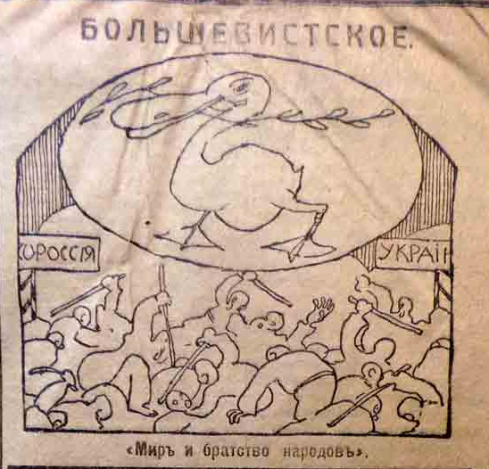
It was during this period that the soviet government began contacting Ambassador Liu Jingren directly. These messages contained the kinds of promises the bolsheviks thought the Chinese wanted to hear: The repudiation of imperialism and restoration of Chinese sovereignty over contested territories.
昨俄國民外務處來文稱,俄國駐華前任公使,絕不代表現時俄國政府。且中東鐵路總辦中將霍爾瓦特業已免職,本處特通知中國政府,並請中國政府組織中俄混合委員會,俾清理中東鐵路問題等語。
同時該外務處遠東股長伏時涅新斯基Voznesenskii與館員電話謂,極願將文中所敘之事,與使館先作私人之討論,訂謁公使等語。當以未經承認,不便接待,託故囑館員延見。
本日一鐘,伏氏來館,辭色極表友睦。先稱現被派為駐華國民代表,擬乘二十二日快車赴華。館員答以因尚未承認,僅能以私人資格與君談論。且使館對於貴處來文,礙難用文答復,深以為歉。至君被派為代表一層,事關國際,中國與各聯合軍國有聯帶關系,當取一致辦法。雖中俄人民極形親睦,亦未便獨異。彼稱俄派Litvinoff為駐英代表,業經接待。答以如是當陳明公使,轉達政府。彼云,願將行期展緩一星期,靜候北京復音。嗣談及撤去霍中將問題,討論甚久。彼意以霍為帝制派,非去不可。中國如曲徇俄請,則俄於中國利益上,必盡力設法使中國滿意。此事彼此辯論細情,詳第十四號電。再伏氏自稱在華多年,素主與華親睦,我國革命時,彼頗從中贊助,並極反對他國在華種種舉動,且謂抵華后,先撤消俄國在華領事裁判權,次提退還租界問題云云。
查伏氏三年前曾充駐滬領館館員,因與領事齟齬被撤。至廣義派駐英代表一節,業經該派報紙登載。略稱,英外相通知Litvinoff,英政府雖未承認俄政府,然未承認以前,願視為脫錄次基之代表,相與往來。惟駐英俄使Nabokoff及館員均拒絕移交離館云。鏡據此特詢此間英代辦,據稱Litvinoff在英請謁外相,外相未見,僅令部員接晤。詢以然則貴國已允與彼談判事件,彼唯唯。現英既允與彼事實往來,我國對待伏氏,似可依照辦理。日本一方面,廣義政府已派國民外務副委員Polivanov前往。
Yesterday, a message from Narkomindel arrived saying that the former Russian ambassador to China in no way represents the current Russian government. Moreover, Chinese Eastern Railway general manager General Horvath has been relieved of his post. It informs the Chinese government of this and requests that the Chinese government form a joint Sino-Russian committee to clarify the CER issue.
At the same time, head of the Far Eastern Section [A.N.] Voznesenskii expressed his earnest wish, in a telephone call with a staff member from the embassy, to discuss the matters set out in the note in a private capacity with the embassy and to schedule a visit with the ambassador. Since he has not been recognised and it is not politic to receive him, a pretext was found for a staff member to meet him.
At one o’clock today, Voznesenskii came to the embassy. His speech and attitude were extremely friendly. He began by saying that he had been appointed the people’s representative to China and planned to take the express train to China on the 22nd. Our staff said that since he had not yet been recognised, he could speak with him only in a private capacity. Moreover, it would be very difficult for the embassy to reply to the note in writing, to its great regret. As for his appointment, this was a diplomatic matter. China is bound to the other Allied countries and must act in concert with them. Despite the warm friendship between the Chinese and Russian peoples, it is not possible to act alone. Voznesenskii said that [M.M.] Litvinov had been appointed representative to Britain and had already been received. Our staff replied that if this was true, it should be clarified with the ambassador and conveyed to the government. Voznesenskii said that he was willing to delay his departure by a week and await Beijing’s response. Talk then turned to the matter of Horvath’s dismissal; the discussion was very lengthy. Voznesenskii averred that Horvath was an imperialist and must leave. If China could accommodate Russia’s request, Russia would do its utmost to satisfy Chinese interests. The details of this discussion are laid out in Telegram No. 14. Then, Voznesenskii said that he had been in China for many years and had always maintained a friendly attitude to China. During our revolution, he had given it his approval and assistance and strongly opposed the various activities of other countries in China. He said that after his arrival, he would first abolish the judicial authority of Russian consulates in China, then raise the issue of returning the concessions.
Voznesenskii was a member of the Shanghai consulate three years ago and was dismissed due to disagreements with the consul. As for the bolshevik representative in Britain, this was reported in the party’s newspaper. To summarise, it wrote that the British Foreign Secretary had informed Litvinov that although Britain had not yet recognised the Russian government, it would consider him Trotsky’s representative in the interim and communicate with him. However, the Russian ambassador to Britain, [K.D.] Nabokov, and his staff refused to vacate the embassy. I approached the British charge d’affaires with this. He said that Litvinov had requested to meet the Foreign Secretary but the latter did not receive him, only instructing a member of staff to do so. I then asked, if this was the case, was Britain not then allowing for discussions with Litvinov? He agreed. Since Britain is now permitting de facto relations with Litvinov, our treatment of Voznesenskii can proceed on the same grounds. Regarding Japan, the bolshevik government has sent Deputy Commissar [E.D.] Polivanov there.
Telegram from Liu Jingren, 12 February 1918 (sent 19 January). Zhong-e guanxi shiliao, Minguo jiunian zhi banian (1917-1919). E zhengbian yu yiban jiaoshe (1), pp. 244-245.
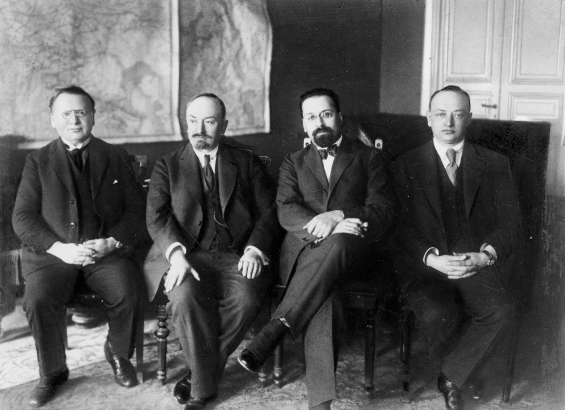
Further concessions soon followed. On 20 February, Narkomindel intimated that it was willing to abolish the Boxer Indemnity, something that the Chinese had been attempting to do since the November Revolution. Then, on 23 February, party newspapers in Harbin and Vladivostok carried an article by Voznesenskii promising that the CER zone would be run by joint Russian and Chinese soviets if China lifted its embargo at Manzhouli.
On 24 January, the hoped-for meeting with the embassy – represented by secretary Li Shizhong – finally took place in Voznesenskii’s home. He introduced Polivanov as his deputy, with whom the embassy could consult once he himself had left for China. Polivanov proceeded to do most of the talking and the minutes from the ensuing five-hour discussion are excerpted here.
Li began with Polivanov’s background:
波為前政府陸軍大臣之侄也,其年尚輕,端謹謙和,殊不類廣義派中人。
Polivanov is the nephew of the former Minister of War [A.A. Polivanov]; he is still young; correct, prudent and modest, completely unlike a bolshevik.
Polivanov’s opening words were carefully chosen:
中俄相繼變革,稽諸歷史,俄孕革命,視中國較先,然屢起屢踣,不圖東亞之中華,竟為我之先進國。想中華國民對我民主必表歡迎。蓋中俄人民,猶兄弟也,自當攜手同行,以達到種種目的。余素主親華,甚願兩民國輔車相依。
China and Russia have followed each other in revolution. Examining this history, Russian was pregnant with revolution before China was, but through our many upheavals it was East Asian China that was unexpectedly more progressive than us. I am sure that the citizens of China welcome our democracy, for the people of China and Russia are brothers and should proceed in unison to achieve our various goals. I am close to China and greatly wish for our two republics to depend on each other.
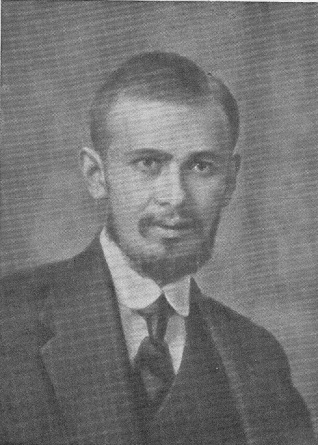
He then touched on the matter of the CER. Here, Polivanov made a faux pas in suggesting that Russia should continue to jointly administer the CER, but turned it around to encourage the Chinese to eject the anti-bolshevik “imperialists” using the railway zone as a base:
波曰:到底中東鐵路問題,在俄視為政治關系,應由中俄兩方和衷解決。
中云:前帝制政府,或有以此為侵略遠東之政策,今君等為反對帝制之最力者,奚亦雲此。中東鐵路祇有一種商辦營業性質…以何不任其自由營業乎。
波云:所云政治關系,即反抗帝制派者。帝制派如顧[庫]使,如霍中將,雖經兵工會政府明令褫職,尚據此中東鐵路為反對革命之地位,且唆動中俄惡感。彼輩素與帝制政府同謀侵華土地,奴華人民,其待遇華工,可為一証。中華民國何反加庇護… 中國人民歷受外國帝制派資本家之抑壓,奚不利用此不可多得之時機,好自為之耶。Polivanov: Fundamentally, in the Russian view the CER question is a political one and should be resolved cooperatively by China and Russia.
Li: The former imperialist government used it as a means of invading the far east. Now that you [and your party] are the most fervant anti-imperialists, how can you speak thus? The CER is a purely commercial entity… Why not let it operate freely?
Polivanov: What I meant by political was in combating the imperialists, imperialists such as Kudashev and General Horvath. Although the soviet government has ordered their dismissal, they are still using the CER as a base to oppose the revolution and stir up ill will between China and Russia. Their ilk always plotted with the imperialist government to violate Chinese territory and enslave the Chinese people. Their treatment of Chinese workers is proof. Why would the Chinese Republic then aid them… The Chinese people have suffered the oppression of foreign imperialists and capitalists, why not use this precious opportunity to look after your interests?
Polivanov subsequently turned to the abrogation of secret treaties, drawing on the Persian example as an oblique reference to China’s semi-colonial status. Perhaps if Russia renounced extraterritoriality, other countries would follow?
此為兵工會之原旨,凡帝制政府與各國關於中國問題所訂各密約,其於中國人民之自由之獨立有所妨礙者,業經公布取銷。並在兵工會政府對於回民及東方人民之公布中,亦經聲明取銷帝制政府壓制東方人民種種之苛法,即如波斯固在英俄勢力范圍中,且幾為英俄屬地,自兵工會政府取銷英俄種種之條約,撤回駐波俄[軍]隊,英政府不特無所反對,據倫敦最近消息,英且附和之。中國地位,既勝為波,與俄同是民國,而中俄人民之友誼,又勝為波俄,兵工會政府定願扶助中國人民。前余游日本,道經奉天,密查中國司法上大有改良處,即巡警亦善為組織。據余意在華中外之會審公堂,盡可撤除。俄之方面,當取銷在華領事裁判權,並當撤退租界之俄國巡兵,代以中國巡警。總之,中國主權應歸中國人。
This has been the guiding principle of the soviets, that of all the secret treaties concerning the China question signed between the imperialist government and other countries, those impeding the freedom and independence of the Chinese people have been published and abrogated. And in the soviet government’s declaration to the Muslims and peoples of the east, it has also stated that the various harsh laws by which the imperialist government oppressed the peoples of the east are abolished. For example, Persia was originally in the British and Russian spheres of influence, almost becoming a British or Russian dependency, but since the soviet government abrogated the various Russo-British treaties and withdrew the Russian troops stationed in Persia, not only has the British government been unable to object, according to the latest news from London, Britiain is following suit. China’s position is greater than that of Persia and, like Russia, is a republic. Moreover the friendship between the Chinese and Russian peoples is greater than that between the Persians and Russians. The soviet government certainly wishes to help the Chinese people. Previously, when I travelled to Japan [in 1915-1916], I passed through Fengtian and saw that the Chinese legal system had greatly improved and its police was well-organised. My intention is that the mixed courts can all be abolished. On the Russian side, the judicial authority of the consulates in China should be eliminated and the Russian police in the concession withdrawn, to be replaced with Chinese patrols. In sum, Chinese sovereignty should belong to the Chinese.
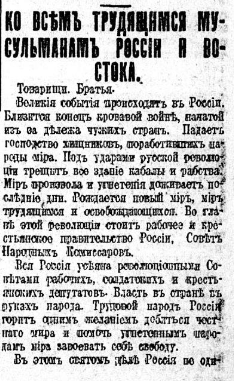
Li then addressed a sore point in Chinese diplomacy: Russia’s relations with Japan. Polivanov’s reply was far from satisfactory, but presaged the formation of the Far Eastern Republic.
中因询之曰:現無外交秘密,盍以君對日本之政策見告乎。
波曰:對日政策有二:一為中國政治上經濟上應屬中國人之主義,一為任日在西伯利亞從寬殖民之計書。此已面告日本使館一等秘書矣。
中云:此二政策適相背,日於歐戰后為世界最強之帝制國,其在遠東勢力亦稱最[?]。君等尚以西伯利亞勢力加諸彼乎。彼在中國可謂獨一之主人翁,一旦日違君等第一之政策,君等將何以扶助中國人民乎。
波曰:君言誠是,然時勢所迫,並無他法。此亦不過暫時之計耳。蓋我儕當設法鼓動日民革命,推倒日之帝制政府耳。Li: Now that there are no diplomatic secrets, could you tell me of your policy towards Japan?
Polivanov: There are two. One, the principle that China’s politics and economy should belong to the Chinese. Next, to allow Japan to expand its settlement plans in Siberia. The first secretary of the Japanese embassy has been informed of this.
Li: Both these policies seem contradictory. Japan will be the strongest imperialist country in the world after the European war, and its influence in the far east is also the most [?]. Why would you still increase their strength in Siberia? In China one could almost call them the master of the house, if they were to violate your first policy, how would you help the Chinese people?
Polivanov: Your words are true, but through force of circumstance there is no other way. Also, this is only a temporary tactic, for we are planning to encourage the Japanese people in revolution, to topple the Japanese imperialist government.
Towards the end of the conversation, Polivanov brought up China’s interests in Mongolia and brought up the machinations of former tsarist diplomats there. Coincidentally, Ambassador Liu had also been discussing Kozakov in an earlier communique.
波复告中曰:中華民國初立時,蒙古出師侵華一事,系為前東方股長喀薩谷甫與前駐華公使庫朋斯基所唆動者。喀薩谷甫主持俄以財力接濟蒙古王,前余在日俄聯合會已聞及此,今在此處檔案內,又見實據。想君當不知此事。
中云:未聞。
波謂:喀薩谷甫並庫朋斯基二人,謀害中國,可稱最力。中俄蒙一約,陽為蒙古獨立,陰實以蒙為俄屬地。我儕亦擬取銷是約,或放蒙古完全獨立,或以蒙古仍歸中華民國為辦法。
中云:據此兩種辦法,君個人意見以為熟[孰]善。
波云:蒙古地僻民愚,恍似古代專制之邦,此世界自不能獨立自治,不如先由中華民國國民為其開化教育,推倒專制后,再放其為完全獨立之為計。Polivanov: When the Chinese Republic was established and Mongolia sent troops to invade China, this was instigated by the former head of the eastern branch Kozakov and ambassador to China Krupenskii. Kozakov proposed that Russia give financial support to the Bogd Khan. I had heard of this when I was at the Russo-Japanese alliance talks; now, in the Narkomindel archives, I have seen proof. I expect you did not know this?
Li: I have not heard of it.
Polivanov: Kozakov and Kruspenskii can be said to be the most active in plotting against China. The treaty between China, Russia and Mongolia ostensibly made Mongolia independent, but secretly turned it into a Russian dependency. We also plan to abolish this treaty, either giving Mongolia complete independence or allowing it to stay part of the Chinese Republic.
Li: Out of these two plans, which in your personal opinion is best?
Polivanov: Mongolia is remote and the people backward, akin to an ancient autocratic confederation. In this world, it naturally cannot govern itself independently. Why not allow the citizens of the Chinese Republic to civilise and educate it first and, once the autocracy is overturned, to allow it to be fully independent?Letter from Liu Jingren, 28 February 1918 (sent 4 February). Ibid., pp. 267-270.
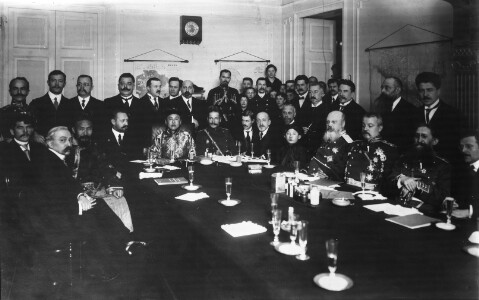
The concessions that Narkomindel was willing to make were breathtaking. They encompassed many of the mainstays of Chinese “rights recovery”: An end to extraterritorial justice, the re-negotiation or even return of the CER concession, writing off the Boxer Indemnity, even a free hand in Mongolia. Li was naturally cautious – if anything, the leniency towards Japan set off alarm bells – and asked Polivanov for a public statement. Polivanov and Voznesenskii demurred, the former calling for “more negotiations” and the latter for recognition as the new ambassador. Only in summer 1919 would such promises be publicised in the Karakhan Manifesto.
Even if the Chinese had been willing to rise to the bait, however, their position within the wartime Alliance was an obstacle. As Ambassador Liu’s note of 19 January showed, they had to follow the Allies’ lead in parlaying with the bolsheviks. But the outbreak of the Civil War and the end of WWI made this increasingly untenable. Japanese-sponsored White forces threatened border security, and the Shandong question at Versailles shook Chinese trust in the western powers. Soviet carrots could well become more tempting than any incentives or punishments the Allies could offer.
